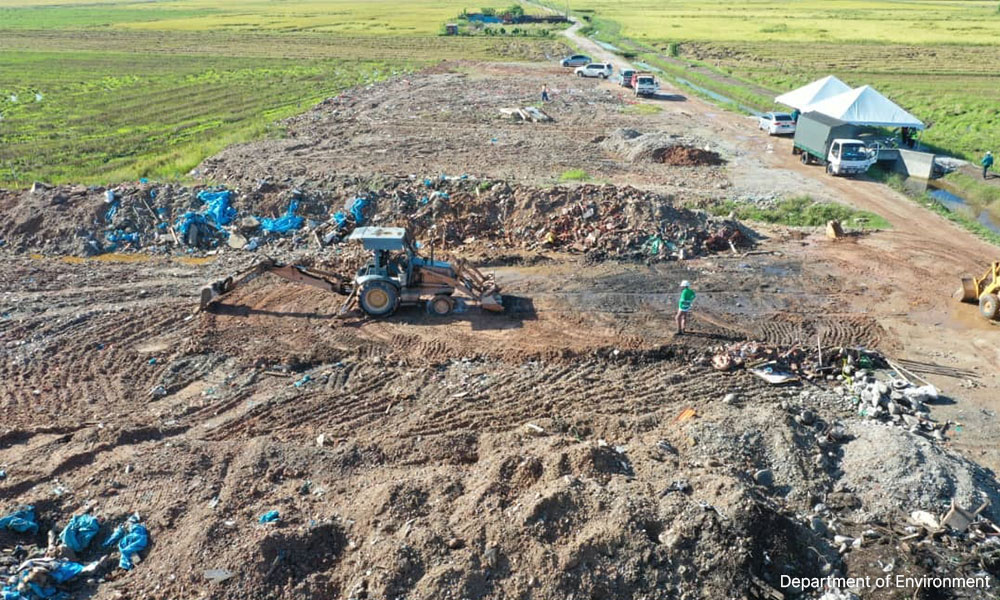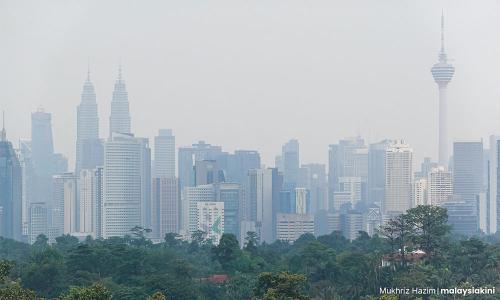LETTER | Haze again?
LETTER | The recent unhealthy levels of the Air Pollutant Index (API) in Malaysia have brought back memories of the 2015 haze crisis, where this nation was choked with smog for weeks leading to school closures and flight cancellations.
Research in 2016 revealed that this transboundary haze may have caused more than 100,000 deaths across Indonesia, Malaysia and Singapore. It seems like we are reliving history, and not in a good way.
The air quality index has reached unhealthy levels once again and the impact of air pollution on our health, especially that of our children, cannot be ignored.
Clean air is not a luxury but a fundamental right that every child deserves. Poor air quality, whether due to local sources or transboundary haze, has severe implications for our children's health and future.
It is the right of every child and youth in Malaysia to breathe air that does not jeopardise their health and well-being. It is a silent yet profound threat to our children.
It is also scientifically proven that polluted air infiltrates bodies, impairing lung development and potentially leading to chronic respiratory diseases, while neurotoxic elements can hinder cognitive growth.

The escalating cases of respiratory ailments among our youth underscore the grim consequences of air pollution, with vulnerable children at even higher risk. These pernicious effects can irreversibly compromise their health, burdening our healthcare system.
According to a report by the World Health Organization (WHO), every day around 93 percent of the world’s children under the age of 15 years (1.8 billion children) breathe air that is so polluted, it puts their health and development at serious risk.
Unicef Malaysia, in an article, stated that children are particularly vulnerable to the effects of air pollution because their lungs, brains, physical defences and immune systems are not fully developed. They breathe more rapidly than adults, taking in a relatively higher proportion of pollutants.
Exposure to air pollution has been linked to adverse health effects in children, including reduced lung function, respiratory infections, asthma and even premature death.
Air pollution is a major, preventable and manageable threat to people's health, well-being and the fulfilment of sustainable development.
Moreover, it is essential to recognise that air quality issues extend beyond physical health. Polluted air restricts the outdoor activities of children and impedes their access to quality education.
Invariably, this exacerbates existing societal inequalities - disproportionately affecting the most vulnerable communities in our nation.
El Nino effect
A recent news article highlights that Indonesia, Malaysia, and Singapore could face the worst haze crisis in five years, due to El Niño, marked by elevated equatorial Pacific Ocean temperatures, which can lead to warmer and drier weather in Southeast Asia, exacerbating the risk of fires - eventually causing severe transboundary haze.
While it is important to avoid assigning blame, focusing on proactive solutions is the key to progress. The Malaysian government has a crucial role to play in ensuring clean air for our children and youth.
Some of the ways they can make a difference include enhancing air quality standards and enforcing stricter regulations to curb emissions from various sources, including industry, transportation and agriculture.
Besides, shifting towards renewable energy sources will not only reduce air pollution but also contribute to a more sustainable and resilient Malaysia.
Government incentives and support for clean energy initiatives can pave the way for a greener future.
Lastly, initiatives to educate the public about the importance of clean air and its impacts on children's health also can lead to greater support for clean air policies and individual actions to reduce pollution.
On the other hand, children and youth also need to play a vital role in driving change and can collaborate with the government to create a cleaner environment by raising their voices through advocacy campaigns and community initiatives to educate their peers and mobilise support for clean air policies.

They can adopt also eco-friendly practices in daily life, such as reducing energy consumption, practising waste reduction and advocating for sustainable transportation options, which can make a significant difference.
It is also undeniable that youth have a unique perspective and creativity to develop innovative solutions.
They can harness these skills to come up with technological solutions addressing various environmental issues including air pollution, such as air quality monitoring apps, green technology and community-based projects.
In these uncertain times, regularly monitor air quality reports, especially during periods of haze, to make informed decisions about outdoor activities, particularly for children and individuals with respiratory conditions.
Use air purifiers indoors and keep windows closed. Ensure access to necessary medications and medical care for children and individuals with existing respiratory diseases or compromised immune systems.
The API is used to assess air quality. A good or healthy API ranges from 0 to 50, with air quality becoming less healthy as it goes above 50, and exceeding 150 is considered unhealthy for everyone.
Let's stay informed, take action and hold our leaders accountable for ensuring clean air as a fundamental right. By working together, the government, youth and all can pave the way for a sustainable and healthier tomorrow.
Let us act now, so our children can breathe easily, thrive and lead our nation towards a cleaner, more prosperous future.
Writer is a Youth Climate Champions consultant for UNICEF Malaysia.
The views expressed here are those of the author/contributor and do not necessarily represent the views of Malaysiakini.
RM12.50 / month
- Unlimited access to award-winning journalism
- Comment and share your opinions on all our articles
- Gift interesting stories to your friends
- Tax deductable
